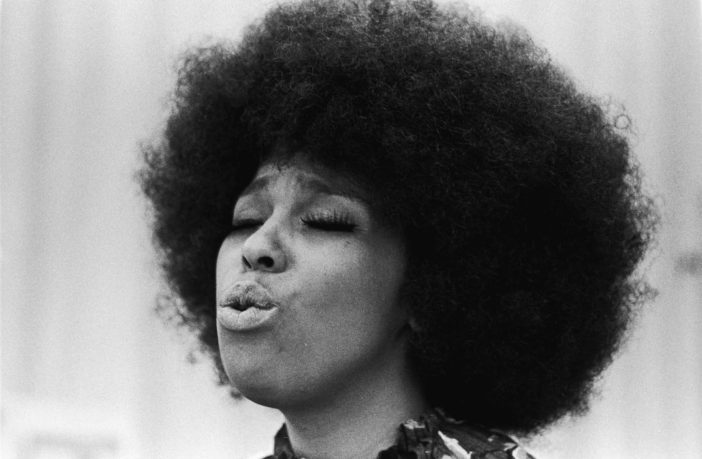Roberta Flack is a remarkable singer whose style has been hard to categorize. Viewers will learn why it’s hard to put her in a box when watching “American Masters: Roberta Flack,” premiering Jan. 24 on PBS. Several years in the making, audiences will hear Flack – in her own voice – tell how her career evolved from growing up in Black Mountain, North Carolina, to an award-winning recording career.
**FILE** Roberta Flack performing at Constitution Hall in D.C. (Courtesy photo)
Classically Trained Church Girl
Flack grew up in the church, where she sat on the organ bench next to her mother, the organist. Her approach to faith music was from a classical music foundation. As a pianist, Flack was considered a prodigy.
“I started studying classical music when I was about 9 years old,” Flack said. “We had a high form of church liturgy. The music I grew up playing was Handel’s ‘Messiah,’ Bach’s ‘Christmas Oratorio’ and parts of the Mozart ‘Requiems.’”
Competing in a music competition at age 13, where she is clearly more talented than the competitors her age, she did not know what to make of a young Black female classical pianist.
“I should have won, but it was a segregated contest,” Flack recalled.
Public School Teacher Meets Stardom
Learning to navigate college life at 15 years old at Howard University and becoming a schoolteacher after graduating were significant steps on her career path.
Flack taught in District of Columbia Public Schools at Banneker, Browne and Rabaut Junior High Schools. This is where things get personal for me. I was one of Flack’s students at Rabaut, where she was known as Roberta Novosel. Her husband was local bassist Steve Novosel. Back then, Flack dug in and enjoyed teaching. She used contemporary music students already knew, like Ray Charles, the Beatles and the Jackson 5, to explain music scales and rhythm.
“As a teacher, you start with what they know,” Flack explained. “And move to what they don’t know. It was really an incredible experience for me.”
One of my classmates from Rabaut, Eileen Gray, has clear memories of Flack.
“I was initially impressed because she wasn’t that much older than us. She did not seem like an old schoolteacher,” said Gray, president of Gray and Associates, a consultancy in Atlanta. “Probably my most poignant thought was when I walked down the hall with Miss Novosel at Rabaut. As teens, we tend to get ‘all in our feelings’ about trivial things. I [said]something wasn’t fair,”
Gray, looking to be consoled, got an unexpected lesson from her teacher, who stopped dead in her tracks, looked directly into her eyes and said, “Life isn’t fair!”
What we didn’t know about our teacher was that she was moonlighting as a singer-pianist with a trio at Mr. Henry’s, a club on Capitol Hill. That’s where jazz composer, pianist, and vocalist Les McCann discovered Flack. Her career was launched then she signed with Atlantic Records.
Big Time, Big City
Flack went to New York to record her first album, “First Take,” released in 1969. For producer Joel Dorn, things did not go as expected with the recording session. He wanted something different from Flack’s trio. Another group of musicians was brought in.
Roberta Flack’s first album, “First Take,” features the single “The First Time Ever I Saw Your Face.” (Courtesy of Warner Music Group)
Bassist and NEA Jazz Master Ron Carter was in that new group of replacement musicians. He explained what happened at the recording session during a Zoom conversation last fall. Along with Carter for the session were guitarist Bucky Pizzarelli, drummer Ray Lucas, and arranger Bill Fisher. The guys were greeted at the studio and learned about the current situation. The new musicians were told that, hopefully, they could help with the recording.
“Well, I can’t speak for these guys, but that’s what I do,” said Carter, referring to his compatriots. “Let’s go to work.”
“The First Time Ever I Saw Your Face” was on that first album, but did not become a hit until three years later when it was on the soundtrack of “Play Misty for Me,” Clint Eastwood’s directorial debut.
This Flack documentary shows how skills learned at a young age served her well throughout her career. Her extraordinary musical and piano talent allowed Flack to become an exceptional arranger. Dedication to teaching gave her the sensitivity to support other musicians, especially her Howard University classmate and duet partner Donny Hathaway. Her drive and caring about many issues gave Flack the reputation of being a protest singer as she aligned with several social justice activists.
In between hearing Flack in her own words, viewers will hear from McCann, Dorn, her former husband Novosel, Eugene Daniels, who wrote 12 of Flack’s biggest hits, and several of her contemporaries and supporters.
Flack’s extraordinary career comes through with great vigor in this documentary. The documentary was filmed before Flack was diagnosed with amyotrophic lateral sclerosis, often referred to as ALS or Lou Gehrig’s disease. Seeing this documentary is a wonderful way to enjoy the fullness of Robert Flack. Here is the trailer for a sneak peek.



